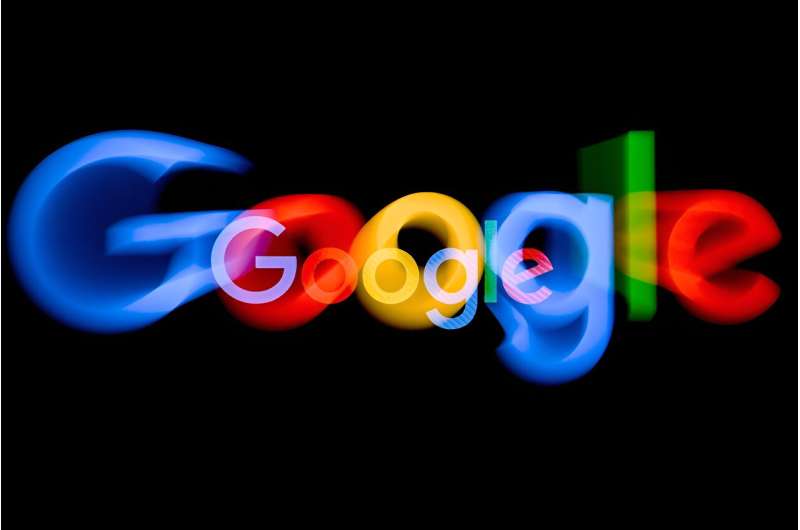
Brand ads on Google aren’t working for advertisers, a new study has found, but Google’s place in the market means marketers still need to buy. Credit: Matthew Modoono/Northeastern University
If you use Google—and you probably do—then you’re used to seeing ads when you search the Internet. But how do those ads get into Google search, and more importantly, who pays for them? It’s easy to think that Nike pays for Nike ads, but that’s not always the case.
Welcome to the world of brand advertising on Google, where companies often have to compete to pay Google for key search terms – a phrase related to a Google search for “Nike” or “Adidas,” for example – or endanger competitors to market to. their research results.
This trend of ad hunting is not new; it has been the norm for decades. But a recent Northeastern University study reveals that the entire advertising ecosystem created by Google, and replicated in other search engines such as Bing and DuckDuckGo, is a “fraudulent market,” says Christo Wilson, a computer science professor at Northeastern, who wrote. the study.
The paper is published in the journal Proceedings of the AAAI International Conference on Web and Social Media.
“Google and other search engines have created this market where you can advertise in online and offline ads, but those ads aren’t performing well for competitors so they’re wasting their money,” said Wilson. “As a result, the defense companies … also have to spend money on these ads and get nothing for it.”
To see if these ads were effective, Wilson recruited a group of US citizens and had them install their devices in their browser. The extension allowed Wilson and his team to see everything that happened in their browser windows during the study.
In Google Chrome specifically, the researchers were able to pull a copy of the participants’ search results, see what they searched for, what they were shown in Google search results and whether they clicked on any of those results. , including advertisements.
From there, the researchers used their data as well as information about how much advertisers have to pay for online ads to measure whether these ads are profitable for the advertisers based on their audience. how many people click on the ads.
“Some people click on a competitor’s ad when something like this happens, but it’s rare and the bounce rate is very high,” Wilson says. about something else.”
So why are advertisers still paying for these ads?
“That’s not the best way to spend your marketing budget, but you have to because that’s how Google and the other search engines designed it,” Wilson says.
These types of ads are a major source of revenue for Google, which makes billions each year from what Wilson equates to rent seeking from advertisers. Since Google has complete control over the internet search market, it sets the terms and everyone – advertisers and other search engines – must follow.
“The fact that Google is able to hire search in this way, maybe it’s not a big deal if there was more competition in online search,” Wilson says. “But given how skewed the market as a whole is for online search, as long as Google says, ‘This is the policy,’ that means it’s going to be the policy everywhere.
“There’s nothing anyone can do about that other than file an antitrust complaint against Google. The whole market has to change if we want to move forward with this.”
It may seem that the only ones affected by this situation are the big companies, but Wilson says that there are small consequences for consumers, too.
“Why do those Nikes cost $200?” Wilson asks. “Some of it is to pay for their advertising. They spend a lot of money on these search ads, but those ads don’t work. Google makes a lot of money and you’re helping Google succeed with your customer acquisition. “
US regulators and lawmakers have raised the issue for years, which Wilson says helped set the stage for the latest lawsuit against Google. Some countries have gone even further. In 2023, India effectively banned brand ads based on what it deemed trademark infringement.
Denying these types of search ads could “spark a lot of online business economics,” Wilson says, but he calls it a sign of broader issues related to Google’s position in the market.
“There’s no question that the reason Google can continue to do this is because they have a lock on the market and there are no other options,” Wilson says. “But if you solve that fundamental problem and make it easier for the competition to search online, maybe this issue will fix itself.”
Additional information:
Jeffrey Gleason et al, Search Engine Revenue from Navigational and Brand Marketing, Proceedings of the AAAI International Conference on Web and Social Media (2024). DOI: 10.1609/icwsm.v18i1.31329
Offered by Northeastern University
This story is republished with permission from Northeastern Global News news.northeastern.edu.
Excerpt: Google-style ads are ‘sham,’ but companies have to buy them anyway, report found (2024, July 25) retrieved July 25, 2024 from https://techxplore. com/news/2024-07-google-brand-ads-sham-companies.html
This document is subject to copyright. Except for any legitimate activity for the purpose of private study or research, no part may be reproduced without written permission. Content is provided for informational purposes only.
#Googlebranded #ads #sham #companies #buy #report #finds